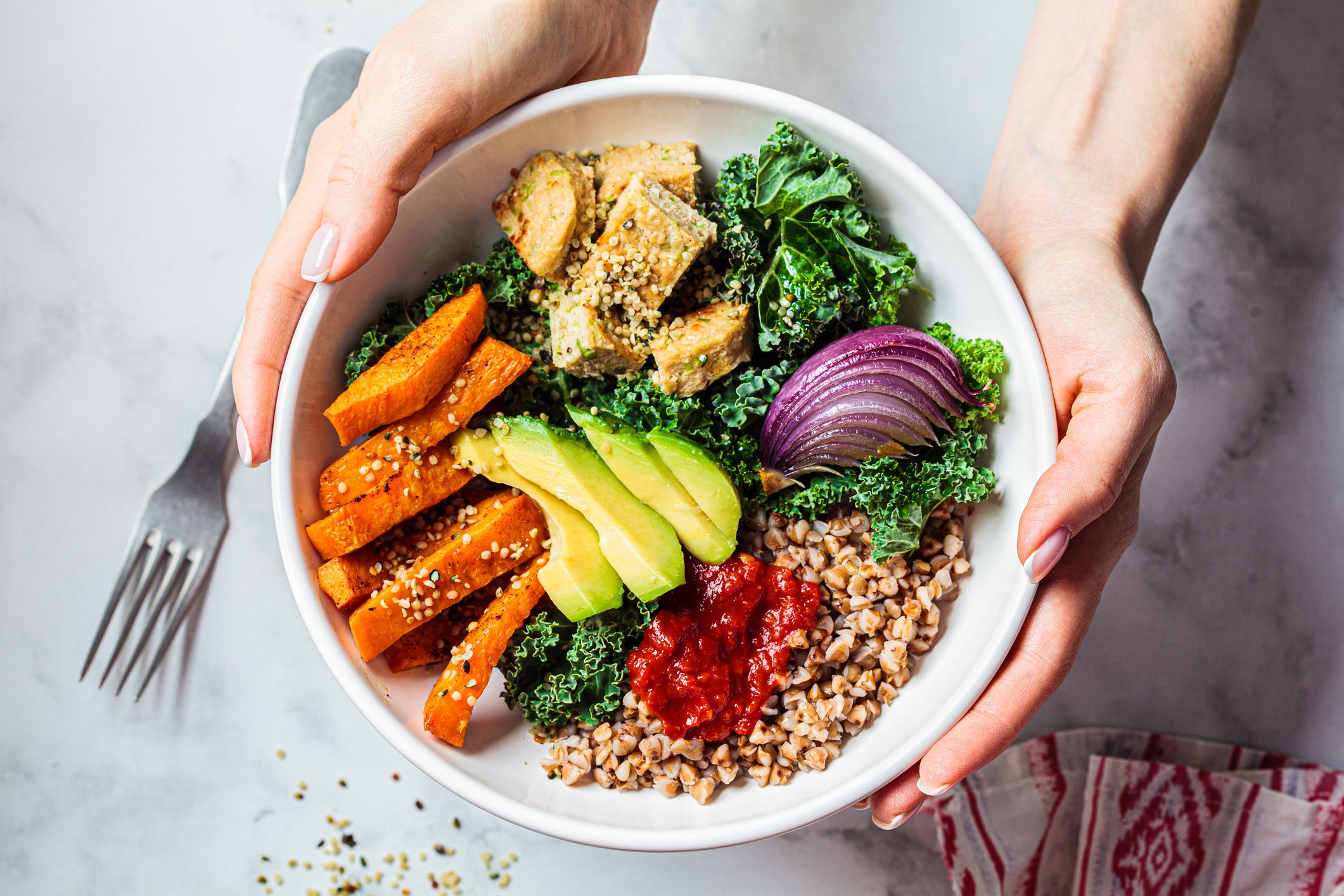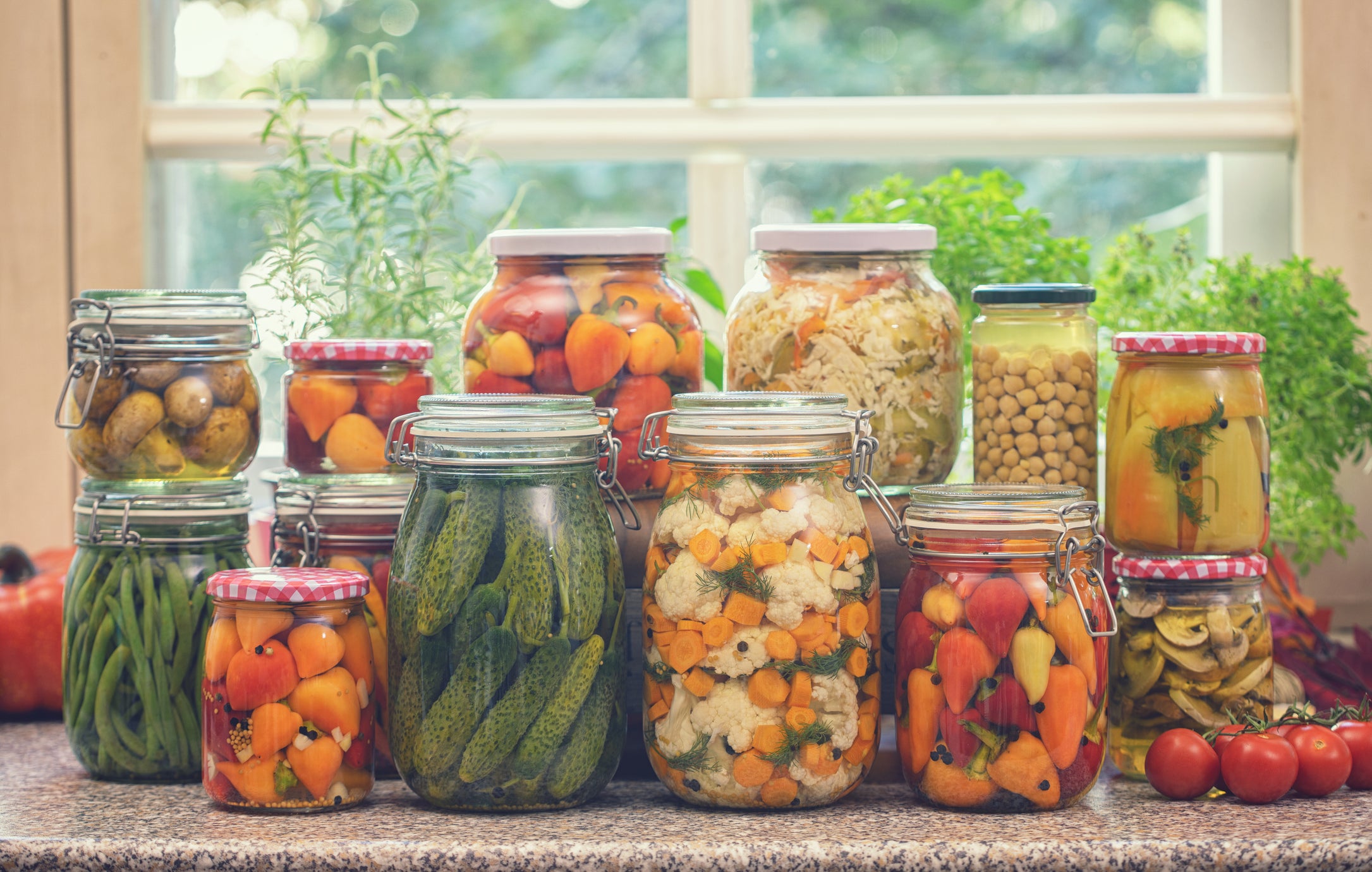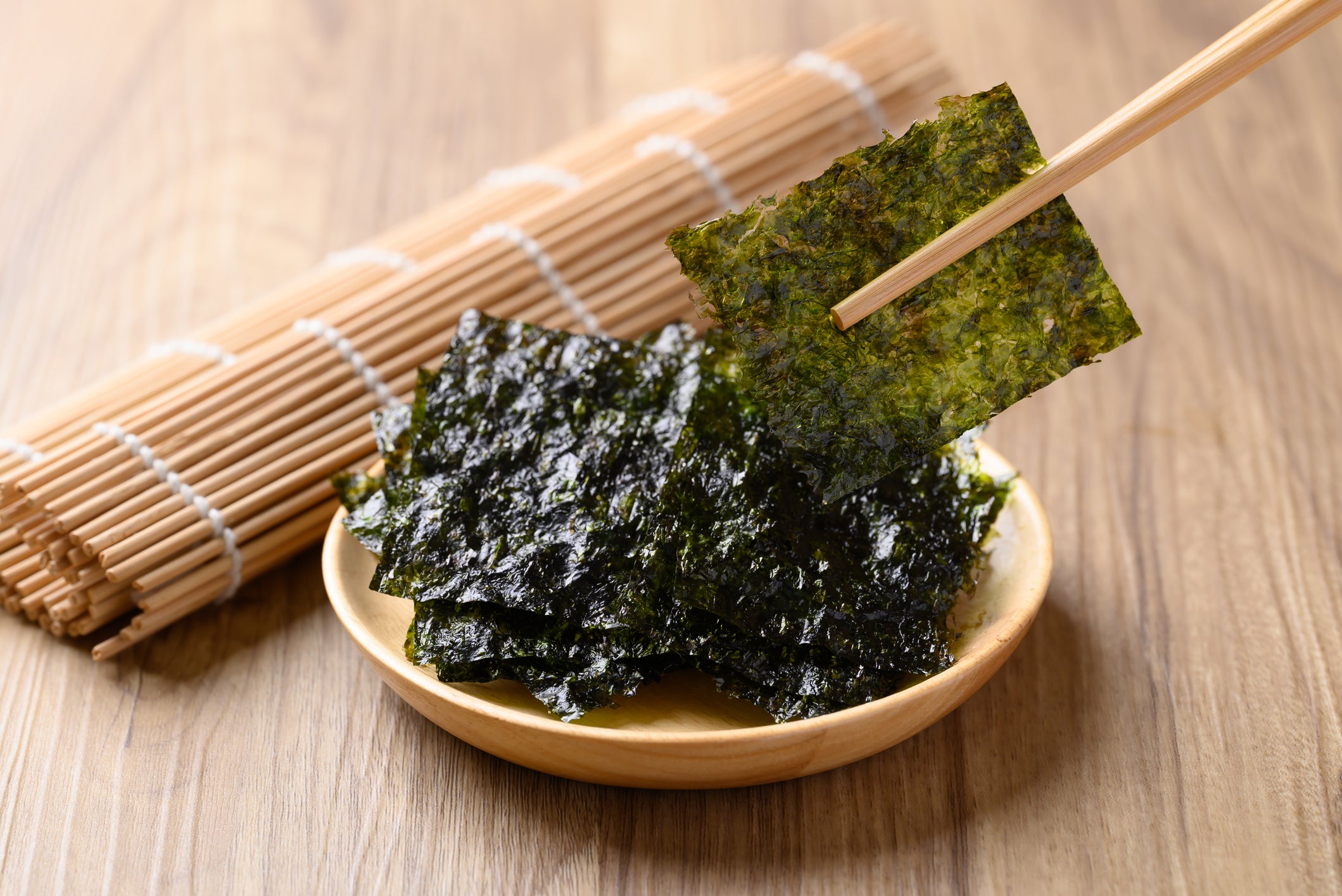Why Veganuary is the reset your gut needs, but only if you avoid this one big mistake
Veganuary is the perfect opportunity to reset your gut, says Hannah Twiggs, who dives into the science and speaks to leading nutritionists about the best plant foods to boost your microbiome. But there is one catch...


Every January, millions of people give Veganuary a whirl. For some, it’s a noble attempt to live more sustainably; for others, it’s about seeing if they can stick it out without bacon sandwiches. But beyond the moral and environmental motives, could this temporary foray into veganism actually transform your gut health?
Anyone who has been plugged into the zeitgeist (or Tim Spector’s Instagram feed) over the past year will know that the gut microbiome – a mind-boggling world of bacteria, fungi and other microbes that live in our digestive systems – is the unsung hero of our overall health. It’s responsible for everything from digesting your morning porridge to boosting your immune system and keeping your mood in check.
According to nutritionists, a vegan diet – abundant in fibre-rich plants and fungi – could be the key to a thriving gut.
Think of your gut microbiome as an ecosystem. It’s home to trillions of microorganisms that, when in balance, do an extraordinary job of keeping you healthy. They break down food, produce vitamins, regulate your immune system and even help create serotonin – the feel-good chemical that puts a spring in your step.
However, balance can be hard to maintain when diets are high in processed foods and low in fibre. Many of us fall short of the recommended 30g of fibre a day, and that’s where a plant-based diet comes in. “While scientists are still working out exactly how different aspects of the gut microbiome interact with our health, fibre comes out again and again as a crucial factor,” says Amy Williams, nutrition lead at nonprofit and think tank the Good Food Institute Europe. “Plant-based diets tend to have a lot of fibre in them for one very simple reason: fibre is found in plants and fungi, but not in animal products.”
Contrary to popular opinion, fibre isn’t just about keeping things moving along in the loo department – it’s also vital for your gut microbiome. Different types of fibre have unique effects on the microbiome. “Certain types of fibre are thought to be ‘pre-biotic’, meaning they act as a food source for the millions of good microorganisms we need to have a healthy gut,” Williams explains. “Beans and legumes, whole grains and mushrooms, as well as certain vegetables like onions and garlic, are high in these types of fibre.”
Recent research backs this up. A newly published study in Nature Microbiology found that eating a wide variety of plant-based foods can improve gut health, while high consumption of conventional meat – particularly red meat – was associated with bacteria thought to be linked to inflammation, colorectal cancer and cardiovascular disease.
The message is clear: the more diverse your fibre sources, the happier your gut.
For many, Veganuary serves as an accessible introduction to plant-based eating. But even short-term dietary changes can yield benefits. “Schemes like Veganuary present great opportunities for people to step out of their comfort zones and try new plant-based foods that can fit into their daily routines,” Williams says. “This can be really helpful for people looking to add more fibre to their diet, which we know is good for gut health and can have benefits that last far beyond Veganuary.”
Top tips for a gut-friendly Veganuary
1. Prioritise fibre-rich foods
Fill your plate with beans, lentils, whole grains, mushrooms and fibrous vegetables like onions, garlic and broccoli. A diverse range of fibre sources is key to a happy gut.
2. Experiment with fermented foods
Try plant-based yoghurts, kimchi, sauerkraut or miso. These are packed with probiotics that can introduce beneficial microbes to your gut.
3. Don’t rely on low-protein veggies
As much as we all love a portobello mushroom, it’s not a one-for-one swap for steak. Include protein-rich options like tofu, tempeh, chickpeas and mycoprotein.
4. Read the labels on plant-based UPFs
Look for products high in fibre (over 6 per cent is ideal) and low in salt (less than 1.5g per 100g). Opt for options with minimal additives and whole food ingredients.
5. Take it one step at a time
Small, manageable changes are more likely to stick. Start by tweaking meals you already enjoy – think chickpeas in your curry or tempeh in your stir fry.
6. Stay hydrated
Water is essential for fibre to do its job. Aim for at least 6-8 glasses a day to keep your digestive system moving smoothly.
While plant-based diets are well documented for their role in reducing the risk of chronic illnesses like heart disease and diabetes, their impact on gut health has only recently come under the microscope. One review suggests that these diets can provide short to moderate-term benefits to the composition of the gut microbiome, while another highlights inconsistent results, underscoring the need for more focused research in this area.
These findings suggest that even a month-long experiment with veganism can improve gut health – benefits that may persist if participants continue incorporating plant-based foods into their diets.
One of the main criticisms of vegan diets is the reliance on ultra-processed meat alternatives. While many praise the convenience and accessibility of plant-based sausages, burgers and nuggets, others argue they’re just as bad as their animal-based counterparts when it comes to health. But is that really the case?
Ultra-processed foods (UPFs) are often criticised, but not all UPFs are created equal. “Evidence shows that sugary drinks, processed meat, cakes and biscuits make up the lion’s share of UPF calories people eat,” says Williams. But, “these foods – already widely understood to be unhealthy when eaten in excess – have little in common nutritionally with plant-based meat, which tends to be low in sugar and saturated fat, high in protein and a good source of fibre.
“Where research breaks down UPFs into subcategories rather than lumping them together, high-fibre foods like wholemeal bread and plant-based meat are actually associated with reduced health risks,” she adds.
Sarah Nájero Espinosa, a nutrition and climate change researcher at the London School of Hygiene and Tropical Medicine, agrees that plant-based UPFs can have a role as transitional tools. “UPFs have become essential in our fast-paced lives but a strategic approach is needed to clearly distinguish between ‘healthy’ and ‘unhealthy’ UPFs,” she says. For example, “Foods such as plant-based sausages can serve as useful tools to help individuals transition towards more plant-based diets, particularly people used to regularly eating conventional meat.”

That said, both experts stress the importance of improving these products by increasing whole food content, reducing additives and fortifying them with essential nutrients.
The plant-based food industry is innovating rapidly, with exciting developments for gut health. “From a gut health perspective, innovations focusing on fermentation, fibre diversity and novel protein blends hold significant promise,” says Dr Alan Javier Hernandez Alvarez of the University of Leeds. “Fermented legumes, grains and plant-based yoghurts enriched with specific probiotic strains can boost the amount of nutrients the body can absorb and introduce beneficial microbes that support gut health.”
Seaweed and algae-based products are another exciting frontier, he says, as these sustainable ingredients “contain unique compounds that stimulate beneficial gut bacteria and have anti-inflammatory and antioxidant effects”. Legumes and mycoprotein-based products also show promise in reducing gut inflammation and promoting the production of short-chain fatty acids, which are essential for colon health.
With all this talk of fibre, fermentation and mycoproteins, switching to a gut-friendly vegan might feel daunting, but it doesn’t have to be. “The most important consideration for any diet change is making shifts that work for your lifestyle and preferences, as those are the ones that will stick,” says Williams. “A common mistake people make is replacing meat like-for-like with a low-protein vegetable, which can make meals pretty unsatisfying – as much as I love portobello mushrooms and sweet potatoes, they are not an appropriate replacement for a beef burger!”

Instead, she recommends looking for ways to tweak meals you already enjoy by replacing animal-based ingredients with plant-based ones – “such as trying plant-based chicken and chickpeas in a curry instead of conventional meat, or cashews and tempeh in a stir fry”. Focus on protein-rich options like lentils, tempeh and tofu to ensure meals are satisfying and balanced.
Veganuary might be the perfect starting point, but long-term benefits depend on consistency. Espinosa says “a broader volume and variety of plant-based whole foods should be encouraged without compromising on the cost and convenience of diets”. By prioritising diverse, fibre-rich foods, experimenting with innovative plant-based options and adopting a balanced approach, you can nourish your microbiome for the long haul.
So could Veganuary be the reset your gut needs? The evidence is certainly compelling. As Williams puts it: “Providing you eat a wide variety of plant-based foods and don’t rely on refined starchy foods like chips, snacks and sugary drinks, adopting more plant-based eating is likely to boost your fibre intake, which is good news for your gut.”
At its core, Veganuary isn’t just about ditching dairy or saying goodbye to steaks for a month. It’s about experimenting, challenging habits and maybe even surprising yourself. If better gut health is the cherry on top, then why not give it a go? After all, the evidence suggests a plant-based diet could be a game-changer for your microbiome – and who doesn’t want to feel a little lighter, brighter and more balanced? Whether you stick with it beyond January or simply learn a few new recipes, your gut will thank you for it.





Join our commenting forum
Join thought-provoking conversations, follow other Independent readers and see their replies
Comments